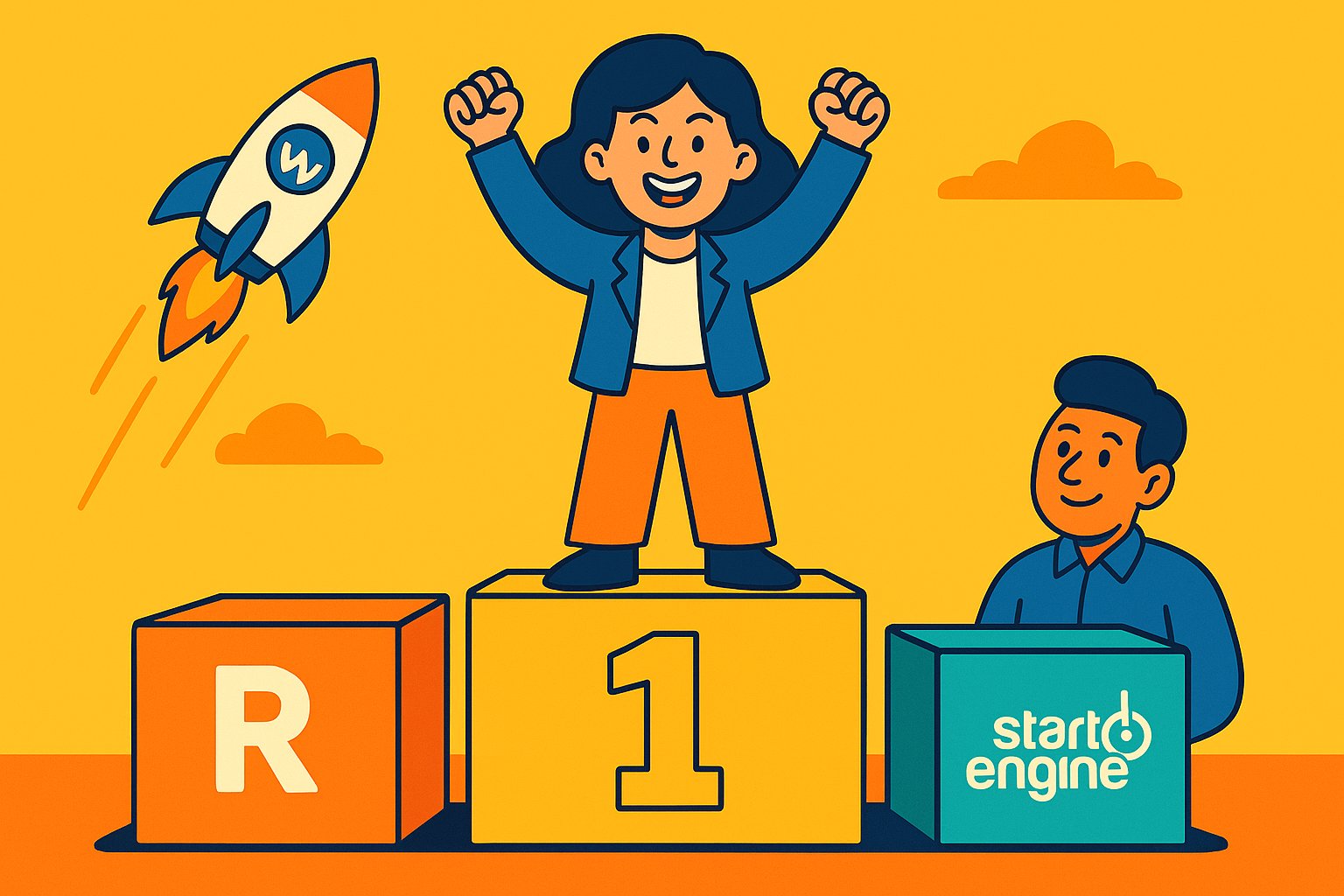Your First Equity Crowdfunding Journey
Taking the leap into equity crowdfunding as a first-time founder is akin to setting sail on an ocean of possibilities: vast, exhilarating, and peppered with uncharted currents. Unlike donation-based crowdfunding, equity crowdfunding invites everyday investors to become shareholders in your venture, aligning their success with your company’s growth. This model has democratized early-stage fundraising, enabling founders without deep VC networks or extensive track records to secure capital from a community of believers. Yet with this opportunity comes responsibility—the need to understand complex regulations, craft compelling narratives, manage investor relations, and choose a platform that aligns with your unique vision and capabilities. The stakes are high: a successful campaign can fuel product development, expand market reach, and cultivate a loyal base of brand ambassadors. Conversely, missteps in platform selection or campaign execution can dampen momentum, erode credibility, and leave valuable resources on the table. This guide will illuminate the path ahead, exploring the critical factors that first-time founders must weigh when seeking the best equity crowdfunding platform for their maiden voyage.
Demystifying Equity Crowdfunding: A Primer for New Founders
Before diving into platform comparisons, it’s essential to grasp the fundamentals of equity crowdfunding. Under the JOBS Act and subsequent SEC regulations, startups can raise funds by offering equity securities to both accredited and non-accredited investors, subject to certain limits based on investor income and net worth. This framework emphasizes transparency: founders must file disclosures, share financial statements, and adhere to ongoing reporting requirements. Unlike traditional funding channels, equity crowdfunding platforms act as intermediaries that manage compliance, process payments, and host your campaign page. They provide the digital infrastructure where potential backers evaluate your pitch, ask questions, and commit capital. For first-time founders, understanding that these platforms are not mere listing sites but full-service partners is vital. Their support ranges from legal compliance and campaign coaching to marketing toolkits and investor relations dashboards. Recognizing this holistic role will help you assess each platform’s fit with your internal bandwidth and fundraising objectives.
Platform Profiles: Leading Players in the Equity Crowdfunding Space
The equity crowdfunding landscape features several prominent platforms, each with its own strengths and weaknesses. Wefunder, Republic, StartEngine, SeedInvest, and NetCapital are among the most recognized names, but newcomers continue to emerge. Wefunder boasts a large, community-driven investor base and hands-on support programs. Republic emphasizes educational resources and co-investment vehicles that allow you to back alongside institutional partners. StartEngine offers advanced analytics and secondary trading options for post-raise liquidity. SeedInvest curates a more selective marketplace, prioritizing startups with proven traction and accredited backers. NetCapital caters to niche sectors like real estate and crypto-native ventures. For first-time founders, the extensive choices can be overwhelming. To navigate this terrain, focus on platforms that balance accessibility with support, minimize hidden costs, and align with your target investor persona—whether that’s the casual micro-investor, the data-driven angel, or the strategic syndicate partner.
Cost Considerations: Fees, Rates, and Hidden Expenses
Every dollar you raise comes at a price. Platforms typically charge a percentage-based success fee—ranging from 6% to 10% of funds raised—plus payment processing fees of 2% to 3%. Some sites impose an upfront due-diligence fee or require you to purchase optional legal and marketing packages. Others bundle compliance services, including Form C preparation, audited financials, and state Blue Sky filings, into a single turnkey package. When evaluating costs, first calculate your expected raise amount and apply each platform’s fee model. Then dig deeper: ask about ancillary expenses such as escrow charges, wire transfer fees, or rev-share agreements with co-investment partners. Transparent platforms will provide a detailed breakdown and even offer fee reductions for reaching fundraising milestones. As a first-time founder, aim for a fee structure that aligns with your budget and offers maximum value—whether through bundled support services, marketing assistance, or investor lead-generation features that offset costs by amplifying your campaign’s reach.
Support Systems: Hand-Holding vs. Self-Serve Platforms
The level of platform support can make or break your inaugural campaign. Some platforms adopt a white-glove approach: assigning a dedicated campaign manager who guides you through every stage, from pitch script development and video production to regulatory filings and investor Q&A sessions. This hands-on model reduces the learning curve but may come at a premium. Alternatively, self-serve platforms equip you with intuitive drag-and-drop builders, template libraries, and on-demand educational webinars. While these tools offer flexibility and lower costs, they require you to marshal internal resources—marketing expertise, legal counsel, and project management chops—to execute effectively. As a first-time founder, honestly assess your team’s strengths and constraints. If you lack prior fundraising experience or in-house advisors, a platform with structured coaching and compliance packages can provide the confidence and guidance necessary to avoid costly missteps. Conversely, if you have a seasoned support network, a self-serve environment can afford you autonomy and cost savings.
Community and Investor Engagement: Finding Your Tribe
Equity crowdfunding thrives on community dynamics. Some platforms cultivate passionate micro-investors who view backing startups as a mission-driven endeavor, sharing campaigns enthusiastically across social media and within peer networks. Others attract data-centric angels who scrutinize financial projections, due diligence reports, and exit potential. As a first-time founder, your choice of platform will shape the tone of your investor relationships. If you envision rallying a grassroots movement around your brand story, prioritize platforms with social referral widgets, referral bonuses, and community forums that spotlight live campaigns. If you prefer to court sophisticated backers seeking robust analytics and accreditation filters, look for platforms that integrate investor segmentation tools, secondary market options, and detailed performance dashboards. Engaging the right investor base ensures that your backers not only commit capital but also become active advocates and repeat supporters in subsequent funding rounds.
Compliance Made Simple: Navigating Regulations with Ease
Regulatory compliance is a cornerstone of equity crowdfunding, and platforms vary in the degree of legal hand-holding they offer. Some integrate seamlessly with trusted law firms, bundling essential services—Form C drafting, financial audits, Blue Sky compliance, and K-1 tax reporting—into a turnkey package. This end-to-end approach can dramatically shorten your time-to-launch and reduce the risk of costly omissions. Alternatively, other platforms provide a modular compliance marketplace, allowing you to select individual legal services à la carte, or to plug in your own counsel. This modularity can yield cost efficiencies, but it demands careful coordination and an understanding of each compliance requirement. First-time founders should lean toward platforms with robust, automated compliance workflows—platforms that flag missing disclosures, generate template documents, and guide you through SEC requirements. The certainty and speed these turnkey solutions offer often outweigh the flexibility trade-offs, delivering peace of mind and protecting your fledgling reputation.
Tech Tools and Integrations: Powering Your Campaign
A modern equity crowdfunding campaign extends beyond the host platform. You need integrations with email marketing suites, CRM systems, analytics tools, and social media channels to orchestrate a cohesive outreach strategy. Platforms differ in their API capabilities, webhook support, and native integrations. Some offer basic widgets—progress bars, referral counters, and campaign embeds—while others provide robust RESTful APIs that export investor data in real time, trigger automated follow-up sequences, and sync with your internal dashboards. Assess your technical resources: if your team includes developers or you already leverage marketing automation software, look for platforms with deep integration support and customizable data feeds. If you lack engineering bandwidth, prioritize solutions with pre-built connectors to popular tools like Mailchimp, HubSpot, or Salesforce. The right tech ecosystem empowers you to nurture investor relationships, track engagement metrics, and iterate rapidly on campaign messaging based on real-time data.
Measuring Success: Key Metrics for First-Time Campaigns
Understanding which metrics matter—and how to interpret them—can transform your campaign from a shot in the dark into a finely tuned fundraising machine. Beyond total funds raised, pay attention to metrics such as average investment size, conversion rate of page views to commitments, referral source performance, and investor churn during the campaign. Some platforms provide heat maps showing which pitch page sections captivate backers, while others track email open rates and click-throughs on update announcements. For first-time founders, metrics illuminate which messaging resonates and where to focus marketing spend. Are you attracting a high volume of small investments but struggling to secure institutional-level backers? Perhaps you need to refine your pitch deck or adjust your social sharing incentives. Regularly reviewing these data points allows you to pivot strategies mid-campaign, reallocating resources to the channels delivering the best ROI and refining your narrative to lift conversion rates.
Platform Spotlight: Which Platform Shines for New Founders?
While every startup’s needs differ, certain platforms consistently rise to the top for first-time founders. Wefunder is often lauded for its comprehensive onboarding support, robust community engagement features, and bundled legal packages that simplify compliance. Republic stands out for its educational resources, co-investment opportunities with professional funds, and developer-friendly API offerings. StartEngine appeals to data-driven founders with advanced analytics and secondary market options, while NetCapital provides sector-specific expertise and streamlined workflows for specialized ventures. Rather than defaulting to the most advertised name, align platform strengths with your priorities: prioritize Wefunder or Republic if you need guidance and community momentum, choose StartEngine if you aim to attract sophisticated investors looking for liquidity, or explore NetCapital if your startup operates in niche verticals requiring tailored support.
Preparing to Launch: Steps to Campaign Readiness
A polished campaign is the culmination of meticulous preparation. Begin by refining your pitch narrative: articulate a compelling problem statement, showcase your unique solution, and quantify your market opportunity with realistic projections. Invest in high-quality visuals—professional pitch videos, product demos, and founder interviews—that humanize your brand. Assemble a pre-launch task force of key supporters and secure early “anchor” commitments to build momentum from day one. Draft email sequences and social media calendars to synchronize your announcement across channels. Run a soft launch with a small group of trusted advisors to gather feedback on your pitch page flow, compliance disclosures, and call-to-action clarity. Use this rehearsal to fine-tune your messaging and identify any gaps in your compliance documentation. A launch plan executed with precision not only maximizes initial traction but also signals professionalism to potential backers.
Sustaining Momentum: Post-Campaign Investor Relations
Securing your first close is a milestone, but maintaining investor enthusiasm post-campaign is where lasting value emerges. Platforms typically provide built-in communication modules that allow you to publish timely updates—product milestones, financial snapshots, team expansions—that auto-notify investors and populate their dashboards. Embrace these features to foster transparency and demonstrate progress. For deeper engagement, segment your investor base based on investment size or strategic alignment and deliver tailored messages—such as beta invitations, advisory board applications, or co-investment opportunities in future rounds. Solicit feedback through surveys and one-on-one interviews to surface valuable insights and build stronger relationships. By nurturing your investors as stakeholders rather than mere financiers, you ignite a network of brand ambassadors who can amplify your message, provide introductions to strategic partners, and champion your startup in the broader ecosystem.
Final Reflections: Choosing Your Ideal Crowdfunding Companion
The world of equity crowdfunding offers first-time founders an unprecedented avenue to raise capital, validate market demand, and cultivate a loyal investor community. Yet the choice of platform can significantly influence your campaign’s trajectory, costs, and post-raise relationships. By weighing critical factors—fee structures, support models, investor demographics, compliance workflows, and technological integrations—you can select the partner that best complements your team’s capabilities and fundraising goals. Whether you opt for the community-driven camaraderie of Wefunder, the educational rigor of Republic, the data-centric ecosystem of StartEngine, or the sector-specific expertise of NetCapital, your decision should reflect a strategic alignment with your vision, resources, and desired investor experience. Armed with the insights in this guide, you’re now equipped to embark confidently on your first equity crowdfunding adventure, transforming your innovative idea into a funded reality and laying the groundwork for sustainable growth. Good luck on your journey—your future investors await.




